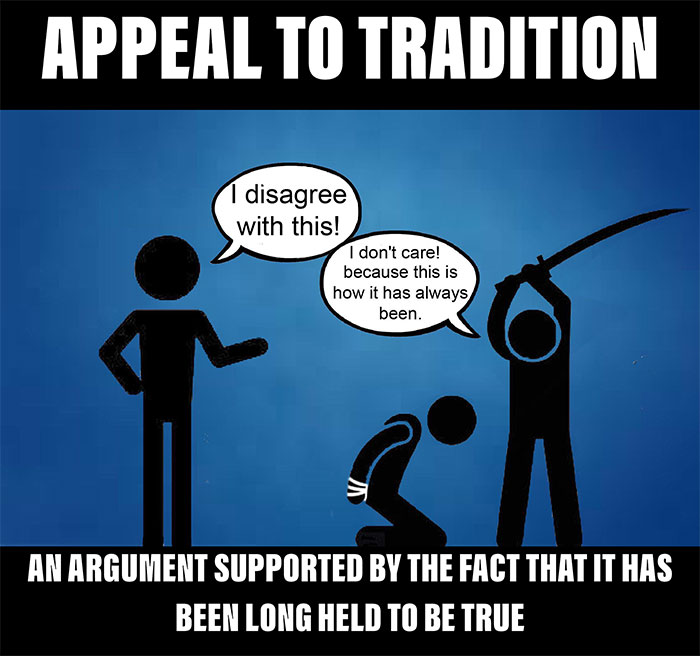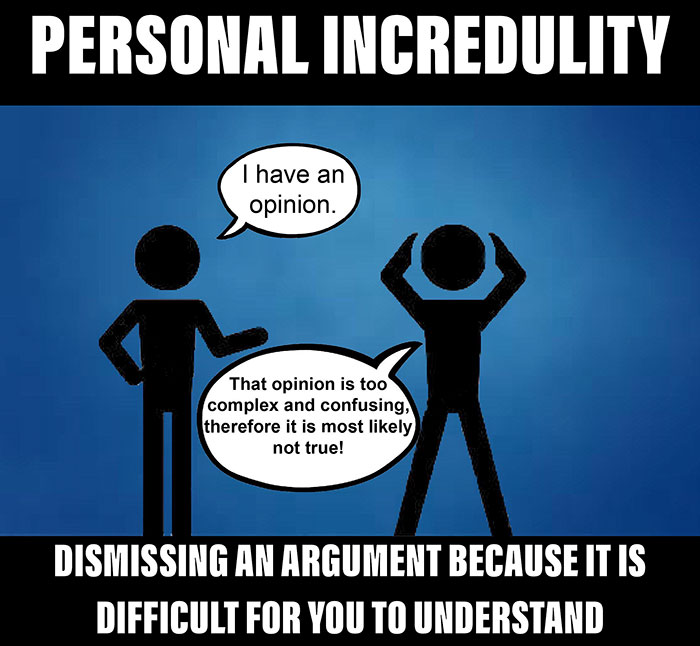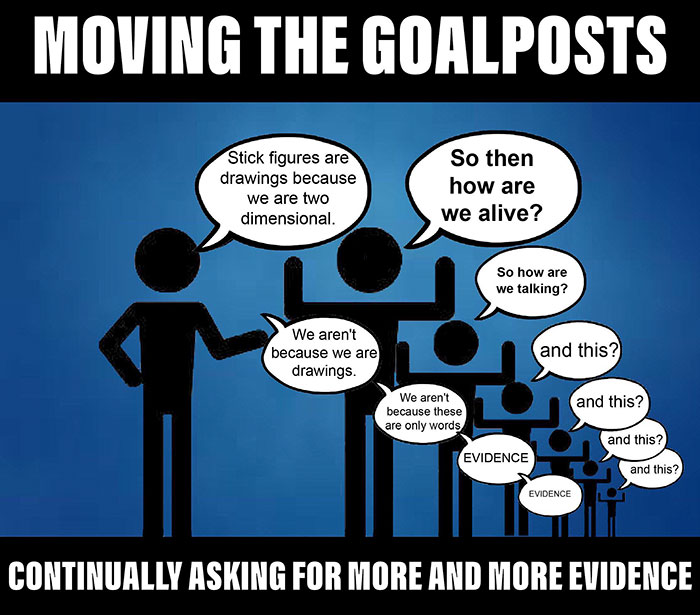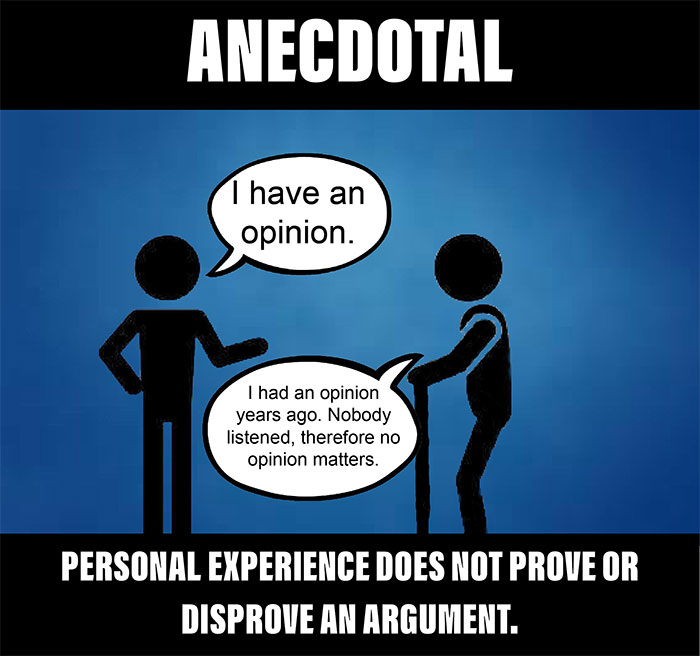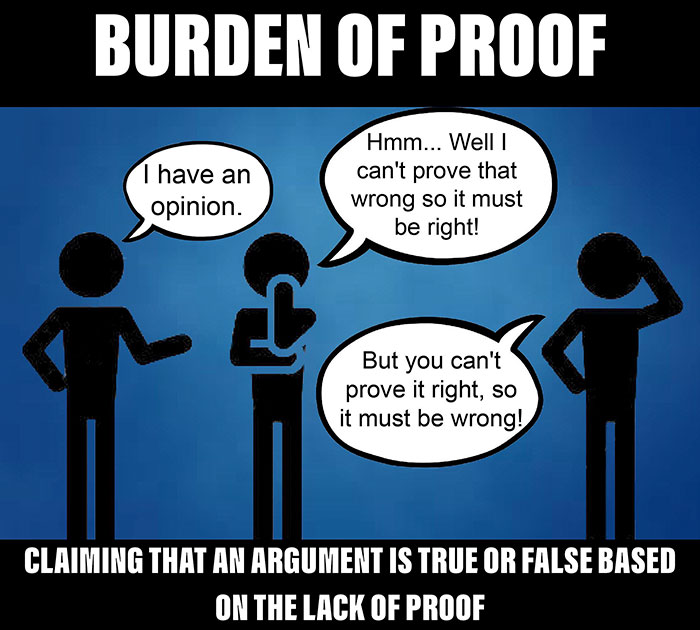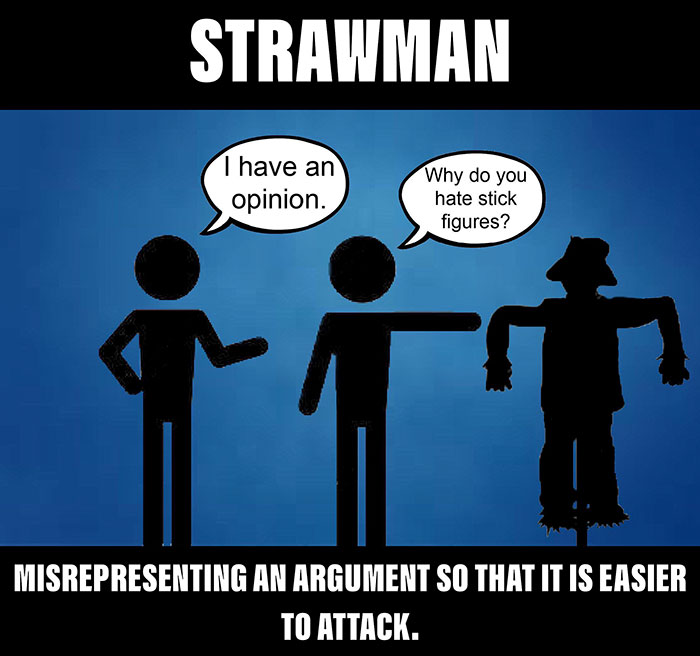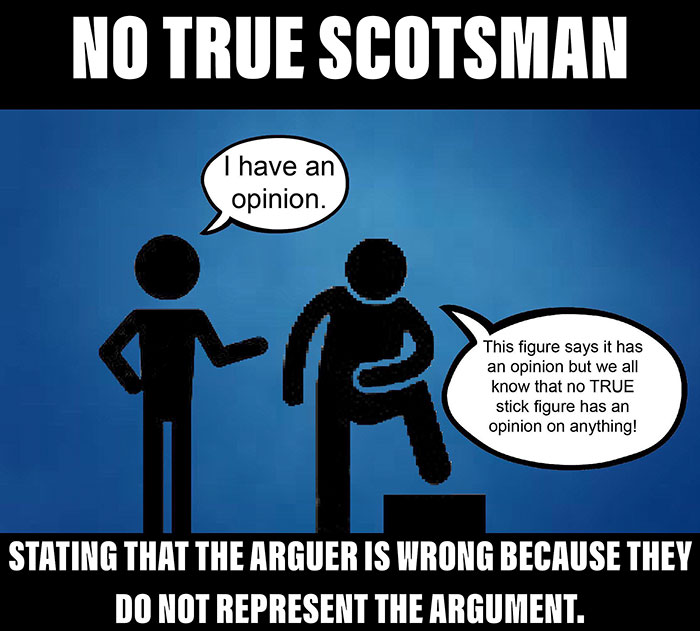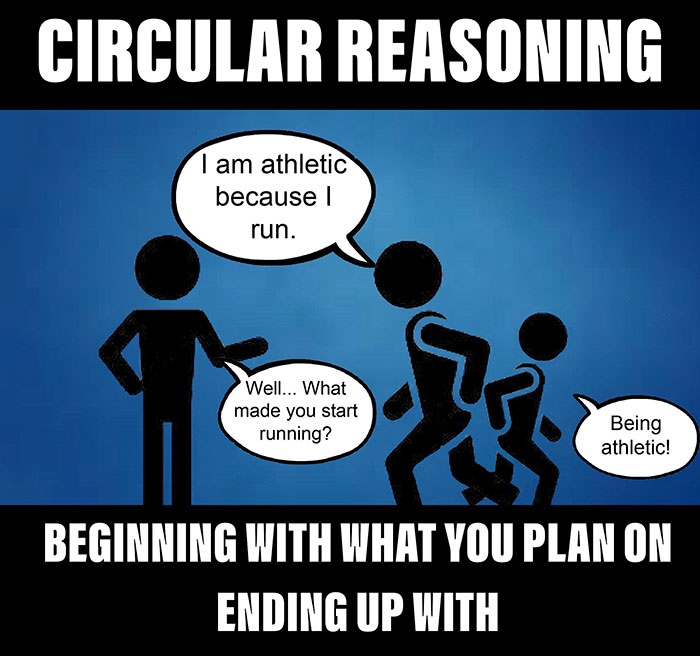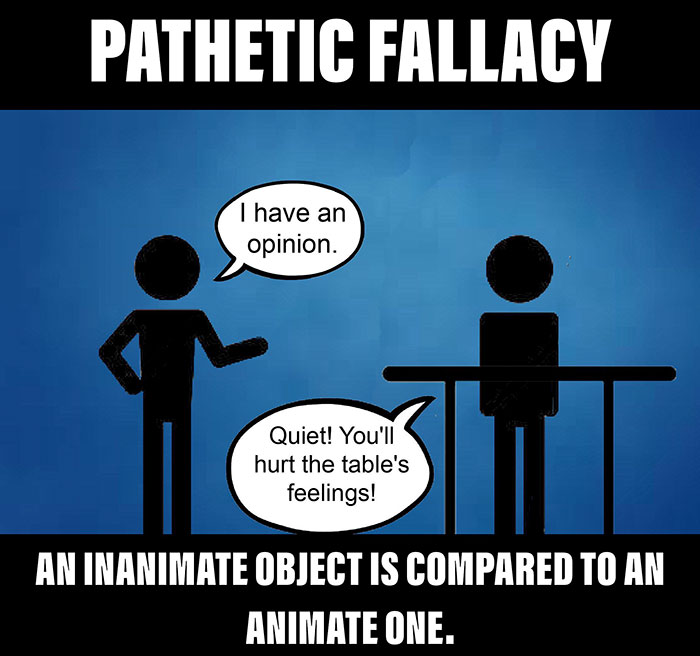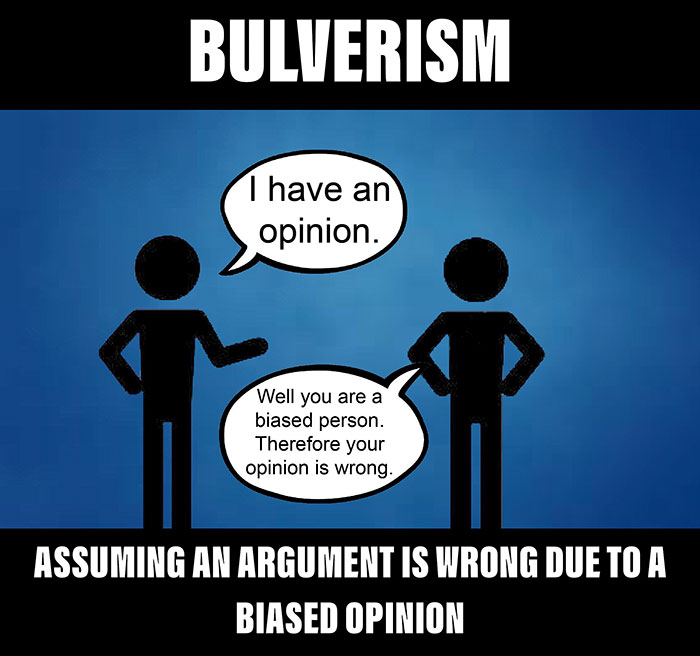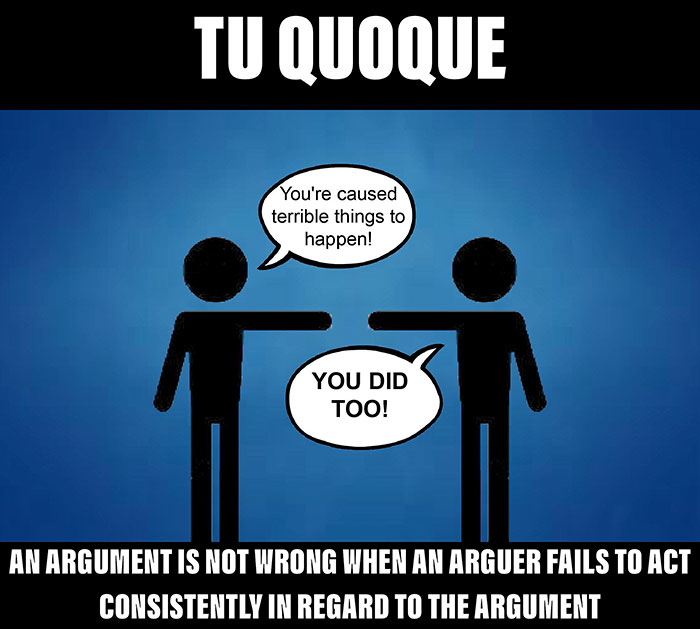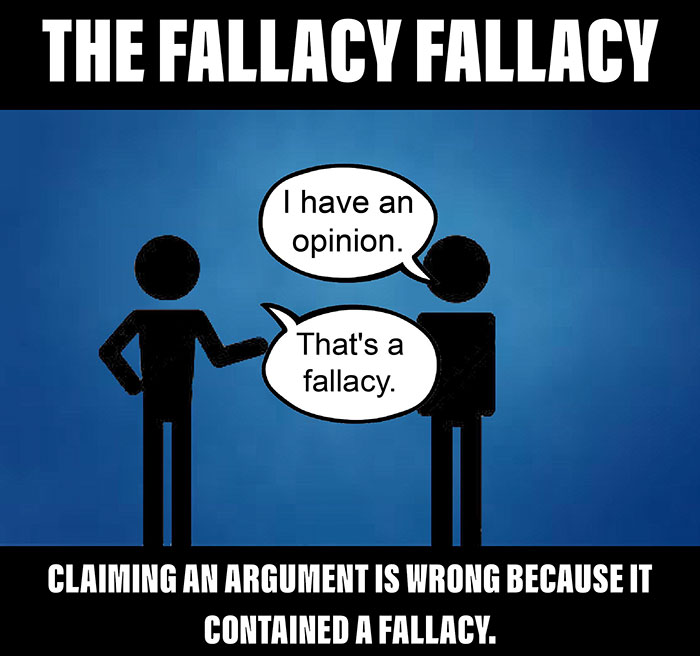A fallacy is an error in reasoning, created either unintentionally during a debate or argument, or sometimes intentionally in order to deceive someone. They are good to know as we spend more and more time arguing with strangers on the internet, it is more than likely tat you have been guilty of one of these common fallacies at some stage!
With truth becoming an increasingly elusive concept in these days of fake news, denial of science and appeal to partisan emotions over logic, being able to spot these fallacies is also an important skill to have. Logan Murphy, from San Francisco, has helpfully compiled a list of the most common fallacies, in easily digestible and humorous illustrations. “They took a bit to make but it was a fun project,” he told Bored Panda. “I was hoping to hit the sweet spot between humor and truth.”
Logan, who has an associate's degree in philosophy, says his inspiration for the illustrations came from working in customer service. “Customers use them a lot in an attempt to get things,” he explained. “I’m never able to call them on what they are doing, so this started out as me venting!”
Scroll down below to check out Logan's educational and amusing illustrations for yourself, and let us know what you think in the comments!
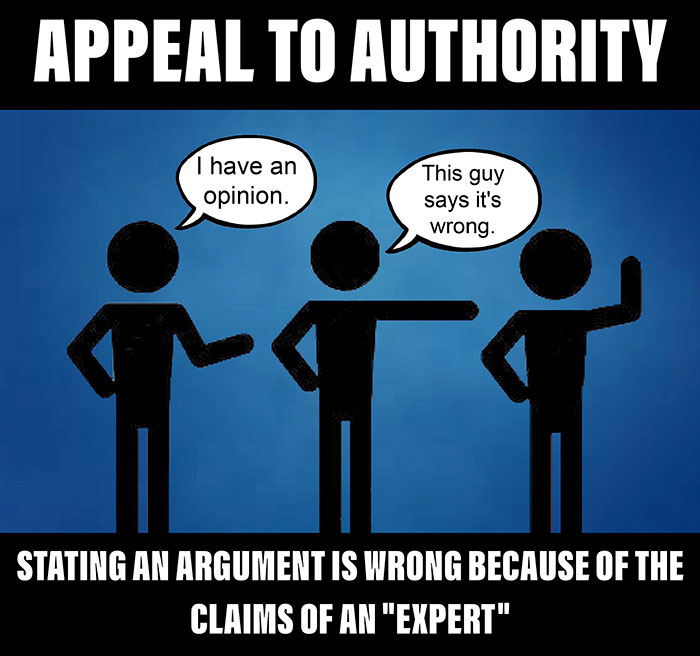
Image credits: Slippysilverpanda
This post may include affiliate links.
This is the exact description of Religion. And the right to have guns in the US.
And this, in a nutshell, is why people believe in a flat Earth...
Stick Plane crashed, 0 Survivors, 377 sticks died! Search for Stick Box under way!
Arguing with religious people in a nutshell. People used to believe that gods lived on high mountains, under the earth and in other places we hadn't gotten to yet, then we explored those places and didn't find gods, so it turns out the gods were in the sky the whole time, but then we went into space and there were no such creatures there, so it turns out they ACTUALLY always lived on a different plane of reality and you can never go there to get evidence that they exist.
This should probably be rephrased, as some "personal experience" can disprove certain types of argument. Take the classical proposition from several centuries ago that all swans were white. It only took one black swan to disprove that hypothesis - if the refuter had seen and evidenced that sighting, the original argument is lost. The issue here is confabulating "opinion" with "experience" - another logical fallacy, as it happens...
Mostly Religous apologists, Flat Earthers and Creationists use all those tactics because they cannot support their asinine, moronic claims with any scientific fact.
Wasn't it Paul Merton who did a bit about this (ca. 1991 - 1993)? "So you don't like toast, hm? What do you want to eat? HUMAN EXCREMENTS?"
"If abortion gets regulated, all women will abort their babies and soon humanity will go extinct! Won't someone think of the children?! :( "
I usually end up with some form of this when I ask Christians "Why did Jesus have to die for God to forgive us?" So far I haven't heard a good explanation. (Yes, there's "he was perfect and paid in blood sacrifice for the whole Adam and Eve debacle" but if God's plan was to forgive people, why didn't he just do it WITHOUT killing Jesus. Ugh, even without all that we're starting on the false premise of the Adam and Eve story being true, which is just immense levels of ridiculous.)
It’s not only about inanimate objects but people’s feelings, as well. "You’ve hurt my feelings" or "this offends me" are on the same level. Someone is offended, so what? It doesn’t give them any rights. Hurt emotions are a part of life, but if people can’t control their own emotions they often start trying to control other people’s behavior. At this point any discussion turns pathetic.
This isn't entirely accurate. According to Wikipedia, which provides a good definition: "The method of Bulverism is to "assume that your opponent is wrong, and explain his error.” The Bulverist assumes a speaker's argument is invalid or false and then explains why the speaker came to make that mistake, attacking the speaker or the speaker's motive."
Yup. Just because someone is a d**k, doesn't mean they can't point it out when you're being one. Being a d**k doesn't automatically make them wrong, just a hypocrite.
I don't get this one. If an argument contained a fallacy (even if the one using it doesn't know it) then, the reasoning is likely to be unsound. Depending of the fallacy of course
"It's hard to win an argument with a smart person, but it's damn near impossible to win an argument with a stupid person"
‘Arguing with a stupid person is a bit like playing chess with a pigeon. No matter who won the stupid bird will still s**t all over the board and strut around like it won anyway’. That’s not the exact quote but it was something like that.
Load More Replies...I also like, "I can explain it to you, but I can't understand it for you."
Load More Replies..."It's hard to win an argument with a smart person, but it's damn near impossible to win an argument with a stupid person"
‘Arguing with a stupid person is a bit like playing chess with a pigeon. No matter who won the stupid bird will still s**t all over the board and strut around like it won anyway’. That’s not the exact quote but it was something like that.
Load More Replies...I also like, "I can explain it to you, but I can't understand it for you."
Load More Replies...
 Dark Mode
Dark Mode 

 No fees, cancel anytime
No fees, cancel anytime 









